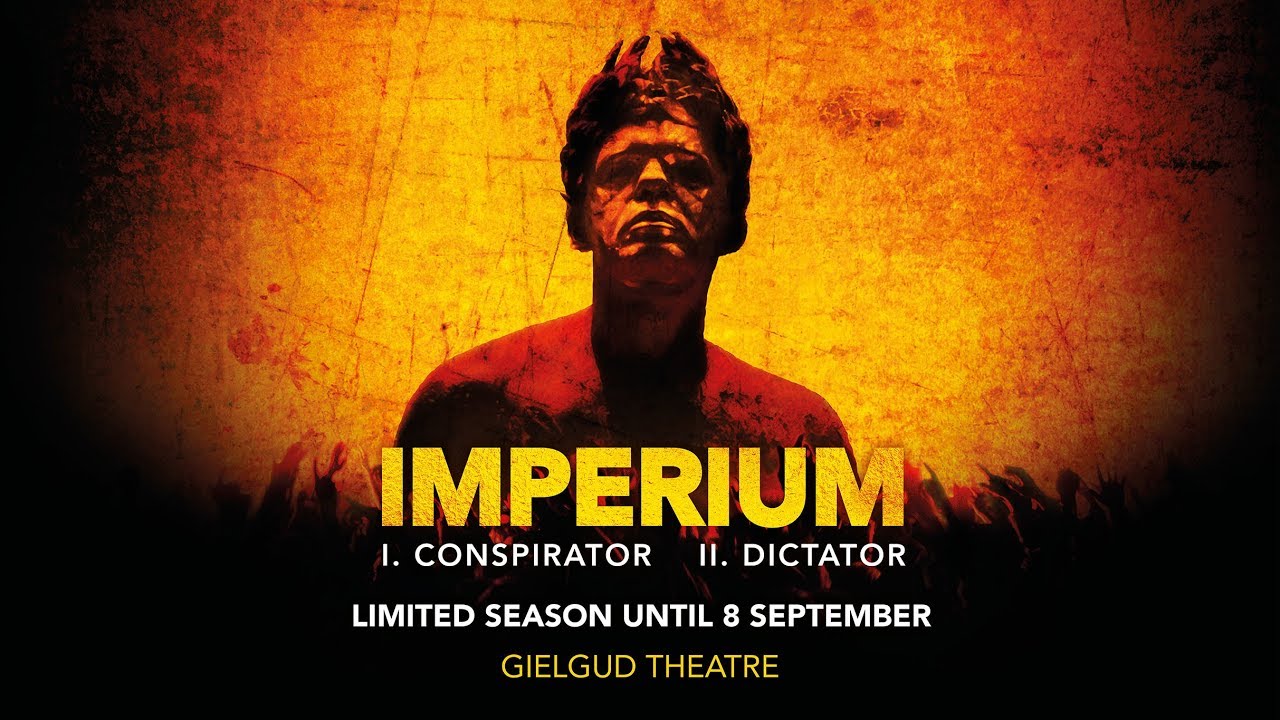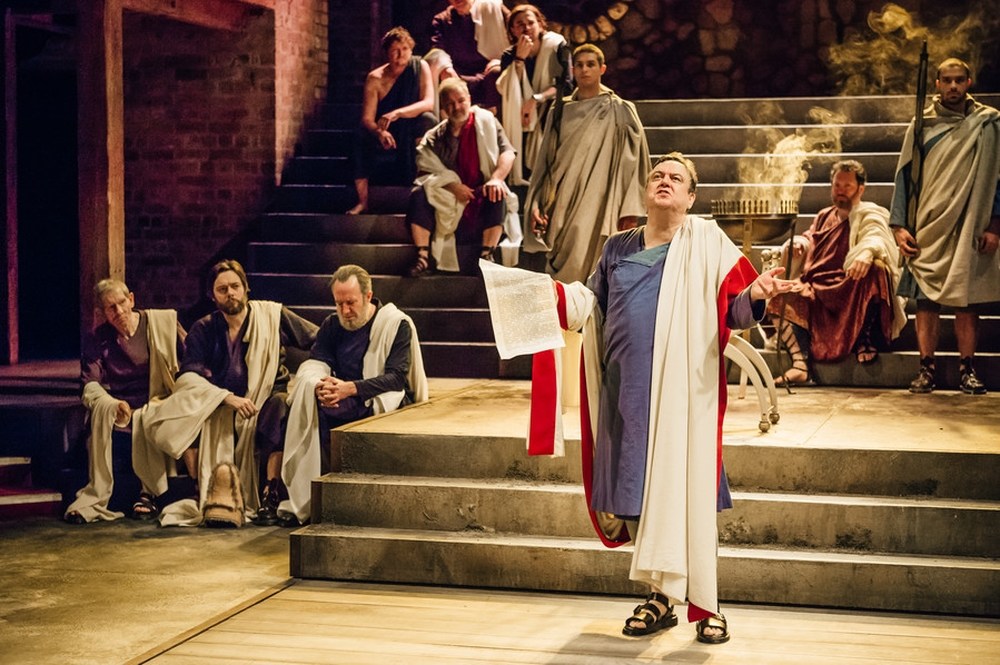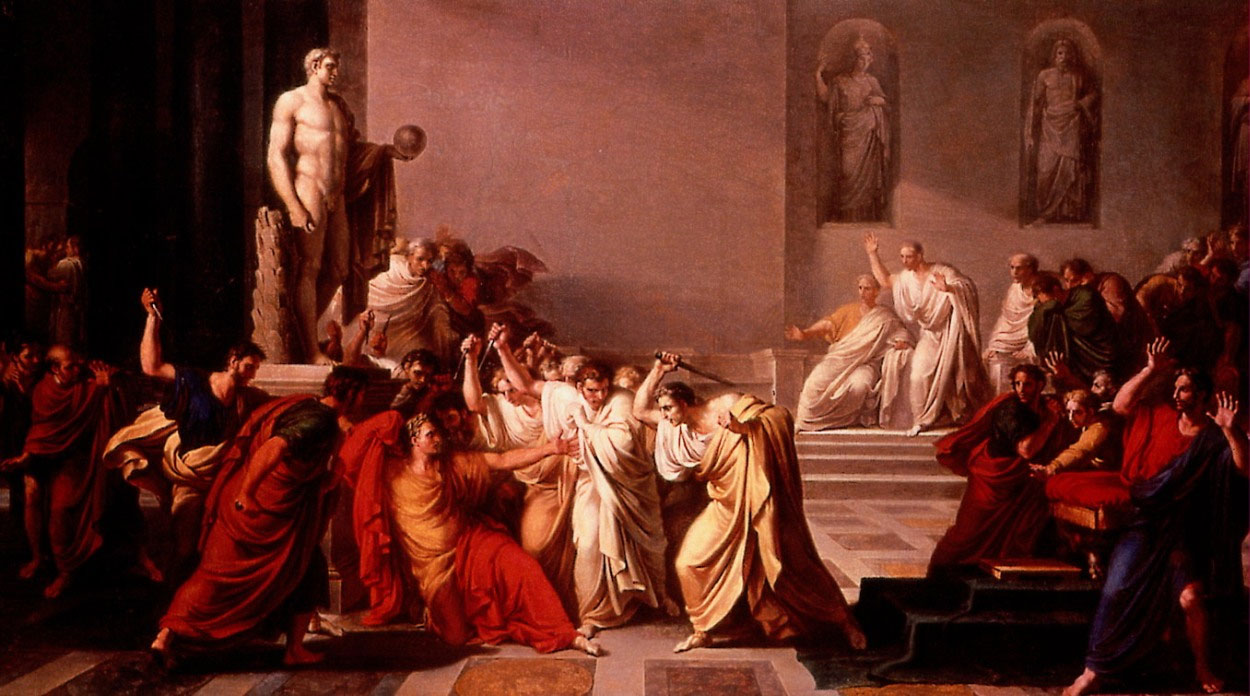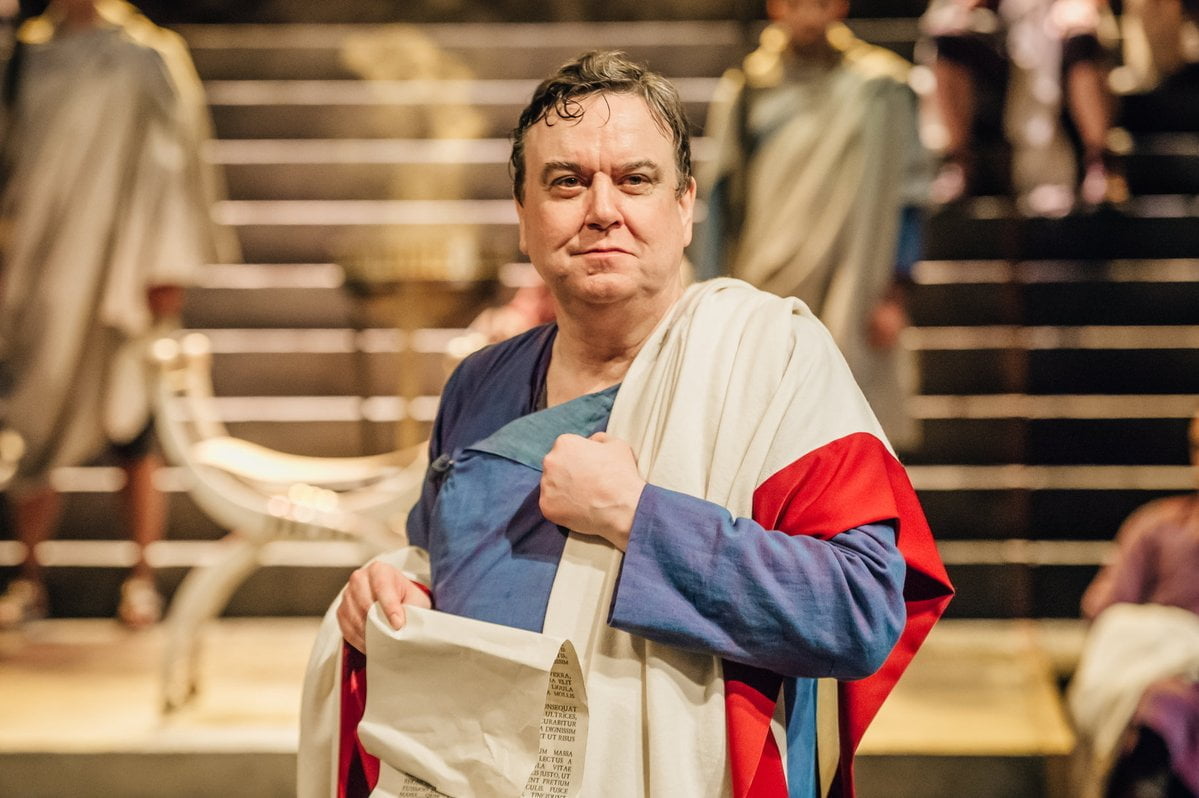A current West End play about the life of the Roman orator Cicero demonstrates the validity of the Marxist explanation about the role of the individual in history.
In the last month I have had the pleasure of seeing a six-hour long theatrical adaptation of Robert Harris’ Cicero trilogy, Imperium.
The play is an intriguing and novel look at the life of one of the most fascinating individuals in human history – a figure who, despite all his great skill and intellect, could not resist the vast, socio-economic forces that were tearing apart the old society that he represented.
Imperium, therefore, is – in its own way – a vindication of the Marxist analysis regarding the role of the individual in history.
Tragedy
The life of Marcus Tullius Cicero is a genuine tragedy, in the true theatrical sense of the word. He was a gifted writer, philosopher, lawyer, and orator. He embodied the ideals of the Roman Republic: bravery (of the political as opposed to the military kind, the latter of which he never had); cunning (as displayed by his handling of the Catiline conspiracy); and ambition.
Whilst he often bordered on the egotistical (as with most Roman politicians), Cicero never sought to place his own honour and power above that of Rome. Rather, to the very last, he could only think of how best to restore the Republic to its former, incorruptible glory.
But this was a task in which he failed heroically, as he watched the inexorable rise of Caesarism and the disintegration of Rome’s republican institutions.

Conspirator
The play is divided into two parts, each roughly three hours long and constituting separate performances with their own, individual ticket prices.
Part I, named ‘Conspirator’, traces Cicero’s rise from plebeian obscurity to high office in Rome. He gains fame as a lawyer, prosecuting the corrupt governor of Sicily, Gaius Verres, and forcing him into exile.
His renowned oratorical skills aid him considerably in his ascent in public life, until finally he is elected to the office of Consul – the highest executive office in the Roman Republic. Cicero gains the office with the support of the Roman ruling class, the patricians (Rome’s aristocracy, descended from the oldest families of the city of Rome).
They support Cicero in spite of his plebeian background, because they fear the demagogue, Catiline, whose incitements of the mob terrify the living daylights out of them.
Cicero, nevertheless, is determined to be his own man. Upon becoming Consul, he irritates the patricians by his stubborn independence, insisting – now and on many other occasions throughout the play – to humorous effect, that “I was elected by the full vote of the Senate and the People of Rome.”
Balancing act
 Cicero must now perform a difficult balancing act between the patricians and the plebeians, doing everything he can to hold the Republic together and prevent either a corrupt oligarchy of patricians or unhinged demagogues like Catiline from running the Republic.
Cicero must now perform a difficult balancing act between the patricians and the plebeians, doing everything he can to hold the Republic together and prevent either a corrupt oligarchy of patricians or unhinged demagogues like Catiline from running the Republic.
His genuine loyalty to the republican constitution marks him out from among the other, venal and self-interested senators, who are distinguished by their complete and utter cynicism and lack of scruple.
No sooner does he become Consul than he must face down Catiline, resentful at his defeat to Cicero, and determined to stir up the mob against the Senate and seize power for himself.
In a protracted struggle, involving many speeches and cunning moves on the part of Cicero (including forgery of evidence), Catiline is exposed as a dangerous malcontent and forced into exile. Here, as Cicero predicts, he heads to join a band of rebels and march on Rome, after which he is defeated and killed in battle.
The death penalty is handed down to Catiline’s captured followers, at the urging of Cicero, who has himself voted emergency powers for this purpose (killing Roman citizens without trial was in fact illegal according to Roman law).
The young Julius Caesar escapes the death penalty (his sympathy with Catiline being publicly known) solely thanks to the intervention of Cicero – who will live to regret sparing the man that will become his great adversary, and who will destroy the Republic he has set himself up to defend.
Exile
Cicero must now face the wrath of the plebeian masses of Rome, who elect a new champion, Clodius, as Plebeian Tribune. He is able to become so only by renouncing his patrician status, in a ceremony presided over by none other than Julius Caesar himself.
Clodius has Cicero exiled from Rome for killing Roman citizens without trial. The follies of Cicero’s strategy are evident as his patrician backers fail to save him from exile.
The Roman ruling class is at this point jealous and suspicious of Cicero. Ignoring that they made him “Father of the Nation” after he saved them from Catiline’s wrath, they have him banished to Greece.
Cicero returns to Rome a year later. But his political career is destined for ignominious decline from here onwards.
The rise of the triumvirate of Pompey, Caesar and Crassus undermines the institutions of the Republic and makes a mockery of Cicero’s constitutionalism. Pompey (who is rather accurately portrayed as a Donald Trump of the Roman world, complete with toupee and thumb-and-forefinger gestures), is conspicuous by his blustering and bullying, and Caesar by his maniacal ambition.

Dictator
In Part II, named ‘Dictator’, Caesar defeats Pompey in the subsequent civil war and seizes absolute power over Rome. Cicero watches helplessly on the sidelines, his silver tongue, once capable of swaying an entire hall of senators, reduced to impotence. He rejoices at Caesar’s assassination, believing that the Republic has been saved.
But what Cicero and Caesar’s assassins do not appreciate, however, is that the death of an individual cannot prevent the great winds of historical change.
The assassins have no plan for what to do after killing Caesar, and Cicero remonstrates with them in vain to make an appeal to the masses for support. The assassins, knowing that Caesar was loved by the people, hate and fear the ordinary Roman people. Mark Antony’s incendiary speech at Caesar’s funeral whips up the mob and forces the “Liberators” into exile.
With Caesar gone, his adopted son, Octavian, seeks to take charge of the Roman populist faction. Though initially an irreconcilable enemy of Mark Antony (Caesar’s loyal friend and deputy), the two unite their forces. This foils Cicero’s attempts to play Octavian and Mark Antony against each other by using Octavian to crush Antony and restore the Republic.
As the price of agreeing to an alliance, Antony demands Cicero’s execution. The elderly, helpless Cicero is killed by one of Antony’s henchmen in his garden as his loyal slave, Tiro, looks on. So ends a noble but tragic life.
Degeneration
 Cicero was right to see Caesar as a tyrant who would destroy the freedoms of the Republic. However, the limits of his strategy stem from his belief that an alliance with the corrupt and venal Roman aristocracy could save Rome from a plebeian Caesarism.
Cicero was right to see Caesar as a tyrant who would destroy the freedoms of the Republic. However, the limits of his strategy stem from his belief that an alliance with the corrupt and venal Roman aristocracy could save Rome from a plebeian Caesarism.
The utter ineptitude of the likes of Brutus and Cassius – the so-called Liberators – speaks volumes about the extent to which the Roman ruling class had degenerated and why they were overthrown by the Roman masses.
Ultimately this degeneration of the Roman ruling class reflected the degeneration of the system they represented. Removing Caesar would not solve the problems that allowed him to rise to power in the first place. This is what Cicero did not understand.
The tragedy of Cicero is that he – along with many other staunch Roman republicans like Cato – genuinely believed that the Roman Republic’s decline could be reversed; that Caesarism was just an accidental aberration of history; that somehow the society which they had grown accustomed to could be saved.
The dustbin of history
 Many well-intentioned individuals today believe the same of the capitalist system. They believe that we can reverse the terminal decline of capitalism; that we can end boom-and-bust; that we can find a way out of this crisis whilst maintaining the present order.
Many well-intentioned individuals today believe the same of the capitalist system. They believe that we can reverse the terminal decline of capitalism; that we can end boom-and-bust; that we can find a way out of this crisis whilst maintaining the present order.
Searching for an answer, some may – like Cicero – be tempted to put their faith in the ‘lesser evil’ of the liberals – those failed, discredited politicians whose self-destructive policies are precisely what has led to the rise of Trump et al. in the first place.
The liberal establishment, in this respect, frequently fall for their own rhetoric, believing that determined individuals such as the ‘Jupiterian’ Emmanuel Macron can somehow stem the tide of the centre ground’s collapse; or that all that is needed to stop Brexit and combat Corbyn is a new Labour leader with the charm and charisma of Tony Blair.
But even a man with the talents of Cicero could not save from destruction the rotten social order in which he lived. What chance, therefore, does any one individual today stand in their bid to save capitalism – a system that is far more destined for the dustbin of history than Cicero could ever have imagined?






